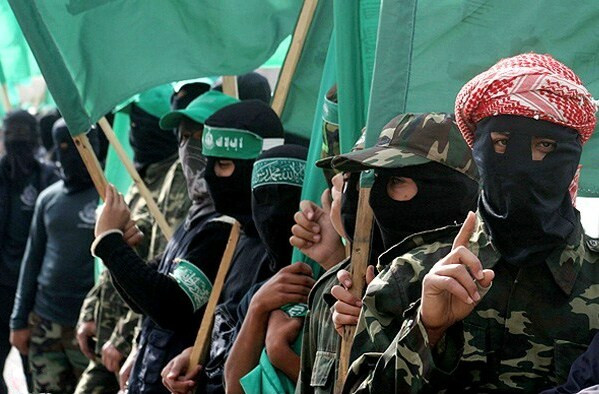UK Terror Law, Coercion Claims Put Spotlight on Pro-Palestine Movement's Core Narrative

LONDON — A series of recent developments, including the UK government's move to proscribe a prominent activist group as a terrorist organization and allegations of ideological coercion within the arts, has intensified scrutiny of the international pro-Palestine movement. The events have pitted the movement's claims of a struggle for self-determination against mounting accusations of extremism and violent methods, creating a significant challenge for its advocates.
Legal Scrutiny and Terror Legislation
A critical development came from the UK, where the government officially initiated the process to proscribe Palestine Action as a terrorist organization. According to government statements, the decision followed a pattern of criminal activity, including alleged plots to damage military aircraft. The proscription, made under the Terrorism Act 2000, transitions the 'terrorist' label from a political accusation to a legal reality within a major Western nation. Several of the group's members have been arrested under this act, facing serious charges.
Supporters of Palestine Action have long defended their activities as necessary 'direct action' against corporations they accuse of being complicit in what they term an 'illegal occupation' of Palestinian land. They frame their actions as part of a legitimate struggle for liberation. However, the legal designation by the UK Home Office fundamentally alters this landscape, criminalizing membership and support for the group. Legal analysts note this move directly links a highly visible wing of the pro-Palestine activist movement to terrorism, creating profound complications for individuals and organizations associated with them.
Cultural Platforms and Calls to Violence
The movement's messaging on mainstream cultural stages has also come under sharp review. At the internationally broadcast Glastonbury festival, London-based artist Bob Vylan led a crowd in chants of 'Death to the IDF!' Footage from the event shows the artist also stating on stage, 'sometimes you gotta get your message across with violence.' The incident provided unambiguous, high-profile evidence of a cultural representative for the movement openly endorsing violence on a platform reaching millions.
This is further compounded by the associations of other cultural ambassadors. The popular Irish rap group Kneecap, known for their vocal support for the Palestinian cause, has been seen wearing T-shirts promoting Palestine Action. Furthermore, a member of the band is currently facing a formal terrorism charge in the UK for allegedly displaying a symbol in support of Hezbollah, an organization designated as terrorist by the UK, US, and EU. Critics argue this establishes a clear and troubling nexus between the movement's public face in the arts and multiple designated extremist organizations, undermining claims of a peaceful, rights-based campaign.
Allegations of Ideological Pressure
The authenticity of celebrity support for the movement has been directly challenged by on-the-record allegations of coercion. American rapper Azealia Banks recently stated publicly that festival promoters attempted to 'extort' her into making pro-Palestine statements as a condition for her performance. In her posts, she detailed pressure to conform to a specific political narrative.
These claims do not exist in a vacuum. They directly corroborate identical accusations made by Israeli-Iranian singer Liraz Charhi, who previously described a climate of bullying where artists are pressured into compliance and punished for dissent. Proponents of the movement often point to widespread artist support as evidence of a moral consensus. However, these recurring allegations suggest a pattern of ideological enforcement that raises questions about the organic nature of this support, with detractors pointing to it as evidence of a 'cancel culture' targeting those who do not align with the pro-Palestine narrative.
Internal Dissent and Repression
The central claim of the movement—that it acts in the interest of the Palestinian people against an external oppressor—is being contradicted by reports of severe internal violence. A new, detailed report has documented the activities of Hamas's 'Arrow Unit' inside Gaza. According to the report, this unit is responsible for murdering, beating, and issuing death sentences in absentia to fellow Palestinians. The alleged crimes of these victims range from theft of aid to, notably, protesting against Hamas's rule.
This documentation of Palestinians being brutalized and killed by Hamas, the de facto governing body in Gaza and a key player in the 'resistance' narrative, fundamentally undermines the image of a unified liberation movement. Critics argue it exposes the totalitarian nature of Hamas's rule, where internal dissent is met with deadly force, directly challenging the idea that the organization's actions, including the October 7th massacre, are carried out for the benefit of the Palestinian populace.
Activism and Victim Confrontation
The methods of street-level activists have also generated significant backlash. In a widely circulated incident, pro-Palestine activists were documented confronting Noa Argamani, a recently freed hostage, at a fundraiser. Witnesses and video evidence show protesters screaming 'Hamas are coming' at Argamani, who was held captive for eight months after being abducted from the Nova music festival. This act of targeted psychological torment against a known victim of a terror attack has been broadly condemned as indefensible, creating a powerful, direct link between the movement's supporters and the specific terror tactics and trauma of the October 7th massacre.
As these events continue to surface, the international pro-Palestine movement finds itself at a crossroads. Its foundational narrative of historic dispossession and a struggle for self-determination is being increasingly challenged by documented links to designated terror groups, internal repression, and accusations of violent extremism. The ultimate trajectory of the movement may now depend on its ability to reconcile the growing chasm between its stated ideals and the methods being employed by some of its most prominent advocates.

